We had been driving for maybe 20 minutes, heading north on the A1, which pretty much shadows ye olde coaching routes back in the days of The Great North Road.
I’d got lucky. First guy to stop and he can take me more of less all the way up to Stamford.
My host, let us call him The Driver, concentrating on the darkness of the road ahead, did not say a word as I got in. Taciturn. Eyes fixed dead ahead. Mr Charisma here. The silent type. Seen too many Clint Eastwood movies, I reckoned.
Nice car, I ventured. My starter for ten.
Nothing. And then….
Than…ks, he said. Mind if I smoke?
Ahhh, he talks.
All cool I replied, hoping I might be the beneficiary of further munificence. Like, maybe a fag…..?
A pack of Marlboro nestled in the central console. Next to his shades. We were shifting. And I’m a nervous passenger.
He offered me a smoke.
Thanks, I said. Grateful. I lit up. Capri…..3.0 litre S….am I right?

Yes, he said, nudging down on the gas as we flashed past a convoy of military trucks – probably headed to one of the Midlands squaddie bases, I thought.
Traffic was quiet…well, it the arse end of the weekend. Everyone still glued to Sunday Night at the Palladium.
The Driver had picked me up on the fringes of London – I had figured it would be a straight-forward hitch up to Stamford.
Bastard awkward place to get to. You try getting a coach up there. and a train? Forget it. Unless you want to take an eternity to go via Peterborough, aka The World’s Greatest Scheisse Hole.
My own car, a beaten up, ancient Mini probably built in Coventry late on a Friday afternoon, was once again requiring the attentions of a mechanic. I swear that car spent more time being fixed than on the actual road.
So hitching was not a bad option, I reasoned. And as I was more or less broke, an economical one at that.
I hadn’t fastened my seat belt, but as I clocked the speedometer hovering around the 90-mph mark, I started to wish I had.
I thought vaguely of work the next day. I’d recently answered an ad for a junior reporter, and managed to bluff my way onto a group of magazines.
The downside? The publishing house was based in a sleepy village on the fringes of Stamford. Also known as the arsehole back of beyond, where even zombies feared to tread.
I glanced over at my mute companion. Jeez, a couple of hours to go yet with Mr Chatterbox.
Another long pull on his Marlboro, tips glowing in the amber light gently radiating from the Capri’s dash.
What takes you up north on an autumnal Sunday afternoon, I asked.
Girl, he said. Then, turning with the trace of a laconic smile…girl trouble, actually. Plus work, he added. Another trace of a smile.
Ok, I nodded, hombre a hombre. Settling back for the ride.
Two blokes, roaring along a darkening road, lives stretched out before us.
I put my driver at early 30s – and I have to say he has good taste in motors, being as he was at the wheel of a beautiful Ford Capri 3.0, litre, one of the coolest, not to say quickest, road cars around at the time.
And one of the most expensive. Fat chance I’d ever be able to sit behind the wheel of one of these.
With my bulging NatWest overdraft following undistinguished undergraduate years and so-so employment prospects, my chances of Capri posing were less than zero.
But hey, as Dostoevsky said, to live without hope is to cease to live. And that my friend, will do for me.
And at least I had a job. I could pay the bills. And that I do not mind admitting was something of a breakthrough at that juncture in the relatively short life of George de Creux.
So-ooooo, I said to The Driver, as the miles sped past, what does a guy have to do to be able to afford wheels like this? You’re a getaway driver, right? A wheel man, I joked.
Being as the speedo needle was now nudging 100 mph, it was not perhaps such an unreasonable assumption.
Man, this dude can drive, I thought, pushing myself a little further back into the recess of the bucket seat. Leather, still with a newish factory smell. Class. This guy is out gunning me on all fronts.
The Driver chuckled. Not a getaway driver, he said. I fly….RAF…. I fly jets.
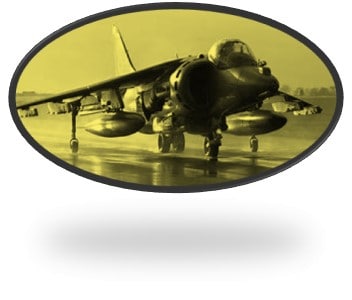
Jets? Wow. That might explain the wheels.
What kind of jets?
Fast combat, said The Driver, reaching for yet another smoke. I’m based at RAF Wittering on Harriers. We’re flying the GR.3 – don’t know if that means anything to you, he said, flicking into third to overtake.
All I knew about those planes was that they were vertical take-off. And how the fuck they did that, who knows…
It’s a hell of a plane, he added, punctuating my silence. Once you get the hang of them…they can be…quirky. We are going to be training on carriers apparently – sorry, he added, I probably shouldn’t be telling you this. Think it’s supposed to be classified, he said, lowering his voice and stressing the ‘class..’
I knew nothing about fighter jets, nothing about flying them.
Yet I carried an image around in my head from when I was a kid, maybe 8 or nine years old, playing war games in my back garden in north-west London.
There’s a low grumble overhead, turning into an intense roar, and as I look up, a squadron of English Electric Lightning fighter jets blasts across the sky at barely 1,000 feet.
I had never forgotten that consummate display of pure power. Coming as it did at a time when the Cold War stalemate demanded regular shows of aggression, on land, sea and in the air.
The combat jets streaking across London skies. The chilling image of nuclear hunter destroyer class submarines, the conning towers thrusting vertically, sonar and radar scanning for Soviet intruders.
It was a nervous, trigger happy time, although being so young I had no idea of the perils presented by conflicting ideologies.
It could all have kicked off at any time, but, content to be machine-gunning imaginary hordes of enemy soldiers from my command centre coal bunker, I was naturally impervious to this uneasy world order.
I was also impervious to the fact that Soviet missile bunkers had been found on Cuba, and all that macho stand-off stuff going down was scary as hell.
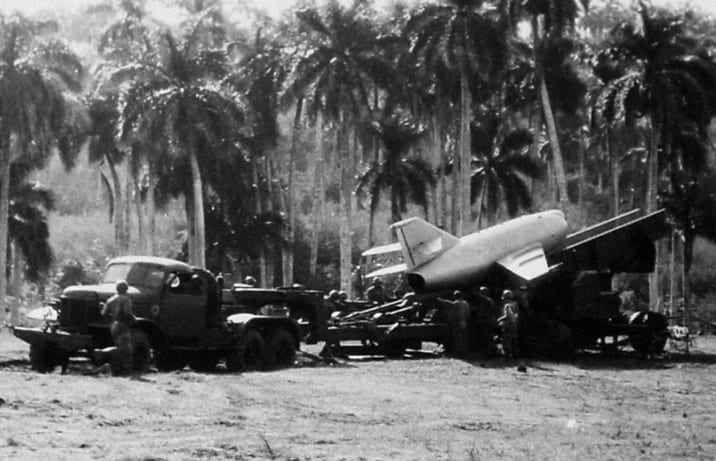
Fast forward to my 20s, and the notion of war – which for my generation really meant the second world war – seemed very distant. Vietnam was raging when I was a kid in the 60s, and as the first television war the vivid, grainy images of choppers dusting down in lush paddy groves and the gaunt faces of the grunts and Vietcong soldiers my go to imagery.
Now, riding shotgun alongside The Driver, I’m reassured. The guy is doing his bit to help keep us all safe, in his case flying a fully loaded 14-ton combat jet at 700 mph.
How did you get into flying…was it the kind of thing you wanted to do growing up?
But The Driver either didn’t hear my question, or preferred to remain silent, focused, the car’s headlights picking out the names of the many unmemorable towns and villages which pepper the old Roman road.
I had lost him for the moment…probably thinking about the difficult encounter looming with his girl.
But wow, flying jets…..
I remember a guy I knew when I was doing my A levels, I said, once again breaking the Capri’s purr…he said he wanted to join the RAF, become a fighter jet pilot. I can picture him, looking up to the sky, almost willing to be beamed up, I waffled on.
I remember this guy, think his name was Francis, told me he thought he would probably fail on his eyesight. Guess you need eyes like a shit-house rat to fly those things, no, I asked.
The Driver thought about this, the car lapping up the newly resurfaced A1.
It kind of runs in the family – flying, that is, he said, finally breaking his contemplative silence.
My grand-dad flew in the First World War – Royal Flying Corps – survived around 60 sorties, which was pretty amazing when you consider the level of attrition back then. If the Germans did not kill you, the planes had a bad habit of dropping out of the sky.
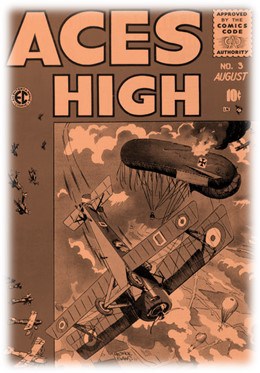
And…..he continued, clearly more relaxed now as we motored ever northwards… my dad flew fighters in the second war.
Hurricanes right at the beginning, then he joined a Spitfire squadron. Dad was brought down early in the war, while he was based in France, but he managed to get out.
He made it through as well, rather incredibly, but he doesn’t really talk a lot about it these days. I know he lost of a lot of close friends – I think, like so many men of that era he didn’t like to share the deeper stuff.
But as a kid growing up, The Driver was now speaking at barely a whisper, lost in the mists of time, swirling in his own thoughts….as a kid, growing up, Dad would take me to wherever he happened to be stationed. He stayed in the RAF, so I was always around planes, one way or another.
Only seemed natural to me that one day I’d be flying one…and here we are, he added, turning slightly to me, face silhouetted against the low amber glow of the dash.
We are passing the Cambridge turn off, ancient villages looming in the darkness, then flashing by.
Now, in the heart of the country, on a trajectory well-trodden by ancient Roman invaders, who would savagely and suddenly descend on the unassuming settlements, ravaging and razing all in their ferocious path.
An England which has long since vanished. Only the ghosts who commune in the darkening mists may know of how life was, once, in this greenest of green pocket of our pleasant land.
It’s a cliché, I thought, this green and pleasant land…. but a cliché with resonance. Immortalized by our great landscape painters. Like Constable, who on his daily meanderings in the country along the Stour near Flatford Mill, not too far east of myself and The Driver.
One of England’s most famous sons, John Constable eschewed the dash to travel in foreign fields, preferring the Devil he knew.
The local bolt hole, Bergholt, the cobbled alleyways of Hampstead, and of course Brighton. For Constable, it was enough. The painter was, as it transpired, easily pleased.
Correspondence to a close chum, one John Fisher (wonder how Mr Fisher would have viewed his mate’s to one of the most famous Englishmen who ever perambulated around the village of East Bergholt), reveals some of the things which gave him the greatest of pleasures.
“Willows, old rotten planks, slimy posts, and brickwork – the sound of water escaping from mill dams.”
Constable, who ironically found greater fame and fortune among French art connoisseurs than his fellow Englishmen, at least cast his net far wider than his Suffolk environs in his pursuit of the holy grail of artistic clarity.
For the last two years I have been running after pictures, and seeking the truth at second hand… I have not endeavoured to represent nature with the same elevation of mind with which I set out, but have rather tried to make my performances look like the work of other men…There is room enough for a natural painter. The great vice of the present day is bravura, an attempt to do something beyond the truth.
As someone who spent a good deal of his youth in a small country town, I can well appreciate Constable’s desire to get out and spread his wings.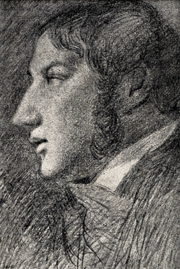
I remember going to a local pub, The Iron Horse, in the dead and alive town – Amersham, in Buckinghamshire – where I was marooned as a teenager in the early 1970s.
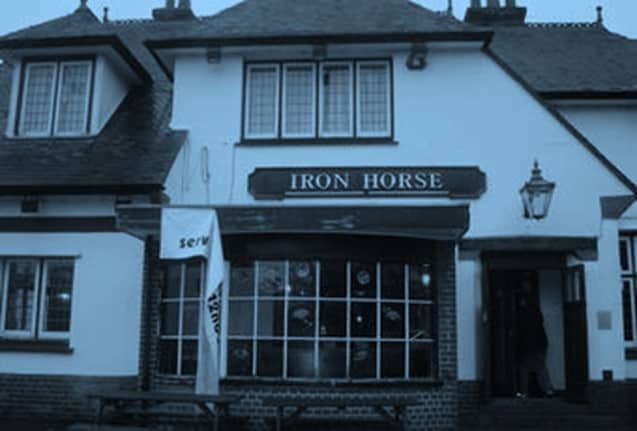
Everyone I hung out with wanted to get out, and one guy, Maurice Lacey, who had not performed with any distinction at school, joined the army.
He became a paratrooper, and boy, did we know it.
Whenever Maurice pitched up on leave, he would leave a mini tornado of destruction behind him in the local bars.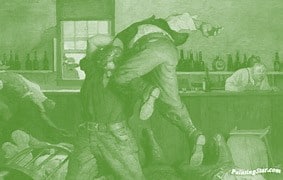
Leaping onto tables to challenge anyone – no matter how big and ugly – to a fight to the death, once he had a skip or two of beer inside him. Maurice was particularly partial to a hideously strong Belgian beer, Le Mot. We all liked a few pints of Le Mot, but mostly we treated it with respect, knowing that too much of the stuff could easily trigger a brutal hangover.
Not Maurice.
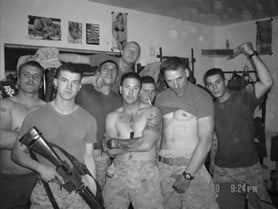
Invariably he would arrive at the pub hell bent on getting as drunk as a skunk, and, once he had sunk enough alcohol to remove any remaining vestiges of reason he might have held when sober, he would turn into a rabid, pit-bull like brawling animal.
I’m a fucking PARA – who wants some??? He would scream, face contorted with rage and bright pink from the beer overload, daring all and sundry to take up the challenge.
I once saw Maurice take down four game barmen in a matter of seconds in The Iron Horse, which stood alone in ugly isolation just over the road from Amersham on the Hill railway station.
As the local nick was just around the corner, the police arrived promptly and somehow managed to get the cuffs on the by now demented Maurice.
No one felt safe from Maurice in that nihilistic frame of mind, even once he had been bundled into the back of the vehicle with his ankles cuffed. It was like trying to contain a cut down, enraged, Incredible Hulk.
I didn’t see the paratrooper again after that lively night, but many years later I read that Maurice had been awarded both a Distinguished Conduct Medal (DCM) and a Conspicuous Gallantry Medal (CGM) for an extraordinary act of courage, hosing a machine gun nest full of Argentinian soldiers in one of the battles which raged around Goose Green during the Falklands war.
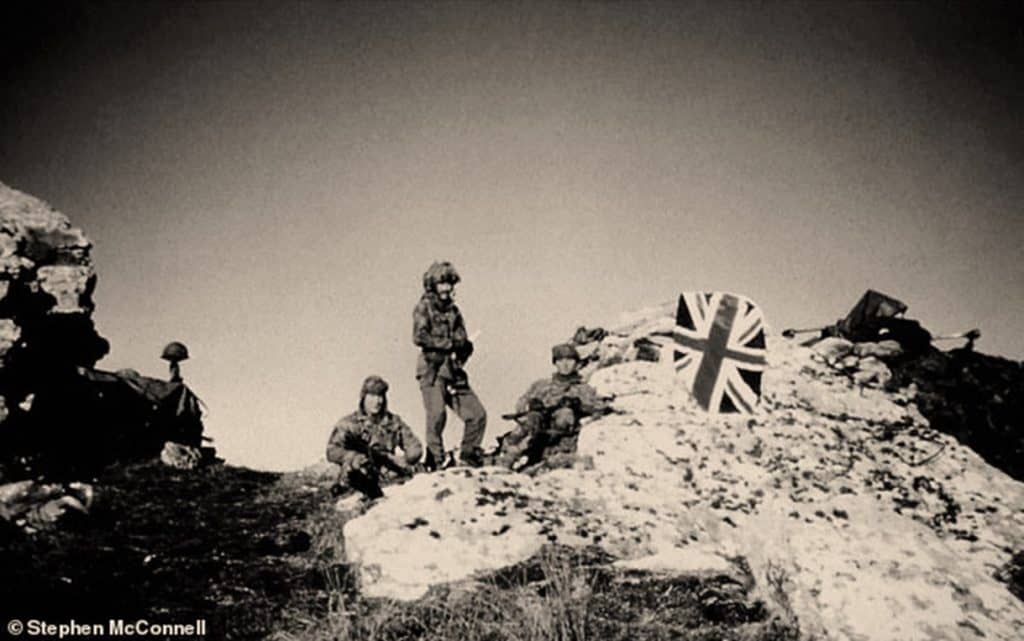
Finally, however, the drink and his rage caught up with Maurice, and following a spectacular fall from grace for assaulting a senior officer, a former drinking buddy told me that he had lost his way.
The now ex-soldier had taken to sleeping rough in Chesham parks, before finally drinking himself into a stupor and freezing to death one deadly cold February night.
And so passed another ghost into the shadows. I wondered if there was a special place on the other side, where Maurice and those who shared his enthusiasm for sudden and devastating violence – would gather to roam in their silent fury.
Some men are designed to go to war, I thought, glancing across at The Driver.
Cool, collected, firm of purpose, not doubting their courage under fire. It’s the other guy or it’s me….is that how they looked at it?
Maurice and The Driver were different types of warrior. The one prepared to jump into a trench full of enemy and rip them apart with his bear hands or whatever weapon came to hand.
The other, his body trained to the limits of human endurance, able to swoop through the skies at beyond the speed of sound and unleash furious destruction on the chosen target.
Or, if desperately unlucky, find himself locked on by enemy missile radar, with an unshakable air to air missile relentlessly closing in on his after burners.
And, as the miles of the Great North Road swept by, the low growl of the Capri’s three litres augmenting The Driver’s stereo cassette music selection – he’s humming along to The Bee Gees’ Saturday Night Fever soundtrack – I feel myself getting droopy, it’s warm and I feel curiously safe, even though we are rarely dipping much below 80 mph.
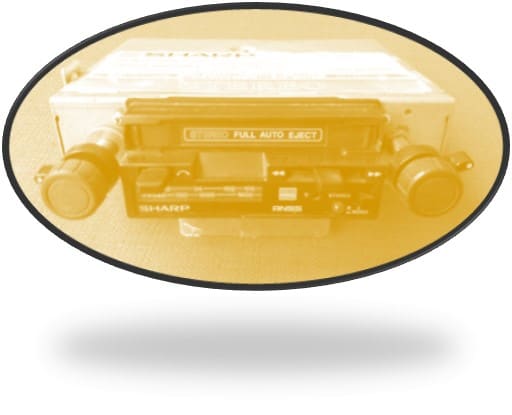
My wheel man eventually started to slow.
Mind if I drop you at the air base? I would offer to take you the last few miles, but…I’m already in deep shit and I need to get in and face the music, he said, enigmatically.
All cool, I said. I can hop on a bus from here to Stamford. It’s only up the road.
We pulled over, and, as I made to get out, he said, I never caught your name.
I’m George, I said, George de Creux. You?
Mike, he smiled, perfect teeth, even, brilliant white, despite this Marlboro man’s two pack a day habit.
Mike Lusitano…..mum was Italian, he said, turning to shake my extended hand. It was nice to have you along for the ride.
Maybe see you around, he ventured, as I got out of the Capri.
Sure, I said, maybe. But if I don’t you have a good life. and drive safe, I said.
What one loves about life, I thought, as I hauled my battered hold all out of the Capri’s boot, are the things that fade.
Ends
